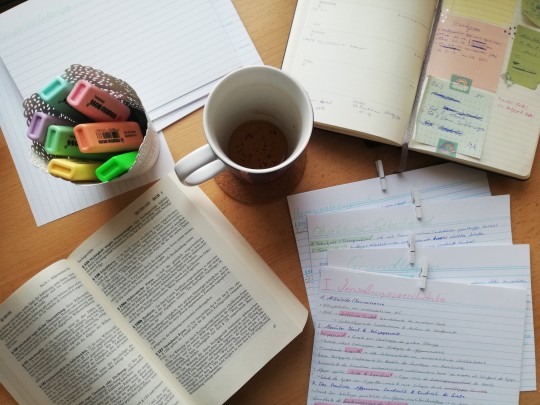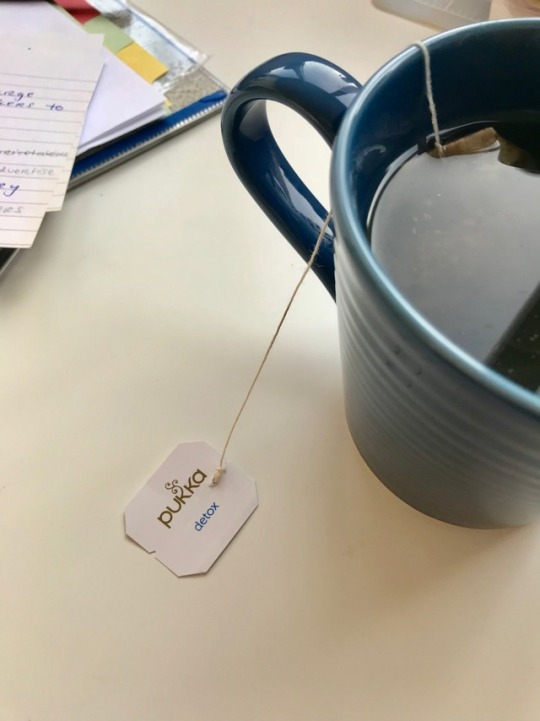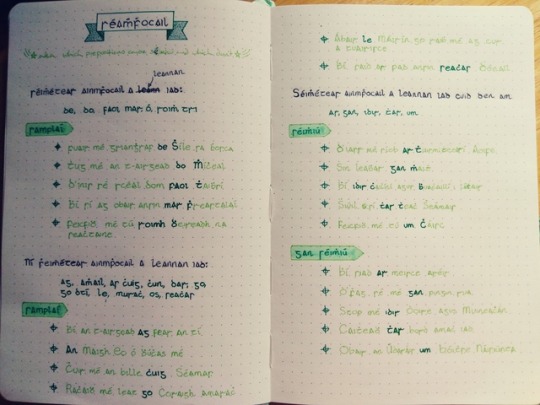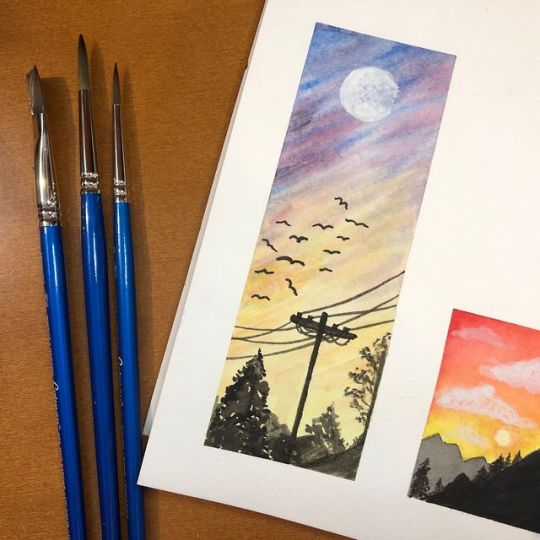#ravenclawhard
Text


11.01.20
New week new motivation. At least I hope so. Tomorrow is another mock exam so that is what my focus will be on. I'm also busx preparing flashcards for the exams in february and I want to spend the weekend solving cases.
#study space#study notes#studyblr#studyspo#inspiration#college#study tips#university#study plan#original content#serendistudy#gloomstudy#heykenzie#mariecuriestudies#heyherb#studylikegeller#ravenclawhard#heyhoneystudies#virgo-diaries#joanna--studies#primrosestudies#emmastudies#lawyerd#historicalemily#athenastudying
74 notes
·
View notes
Note
What essay topics do you recommend to write in a foreign language for beginners? Give me at least one if you’re bored to make a list please ❤️
Hi i think i saw the ask you sent to @nabasynth (thanks for thinking of me ella!
So i’ve based most of this on my experience with GCSE languages and the questions and topics we did. i don't know what language you are learning so i’ve tried to keep it relatively general and I've kept all the questions in English. i’ve also tried to put them in a rough order of difficulty so you can progress in complexity.
Ok, so basically I've listed a bunch of questions that you could answer in full sentences that were part of the essays I did. In my experience, they are really good ways to learn vocab and sentence structures. I’ve tried to put different tense in and questions that ask for opinions because it is really important that you learn to do include various tenses and opinions in all essays.
1. Family
How many people are in your family? What are their names? Where do they live? What do they look like?
Do you get on with your parents? What do you argue about?
Do you have brothers or sisters? Do you get on with them?
Who is your best friend? What does he/she look like? What do like to do together?
What qualities must a good friend have?
What did you do with your friend last weekend?
What will you do with your friend next weekend?
What do you think about marriage? Do you want to get married in the future?
2. Where you live
Where do you live? What do you like about where you live? What do you dislike about where you live?
Describe your house. What are the positives and negatives of your house?
What would your dream house be like?
What are the positives and negatives of living in a city?
What are the positives and negatives of living in the countryside?
What did you do last weekend in your town?
Where would you like to live in the future and why?
What would your ideal city be like?
3. Freetime (Sport, Music, Films, TV, Food)
What is your favourite thing to do in your free time?
When you were younger, what was your favourite thing to do in your free time?
Do you enjoy playing sport? What is your favourite sport? What do you do to keep fit/healthy? What is your least favourite sport? What are the benefits of playing sport?
Do you like listening to music? What is your favourite type of music? What is your least favourite type of music? Who is your favourite singer/band? Why do you like them? Have you ever been to a concert? Who would you like to see at a concert? Do you play any instruments?
Do you enjoy watching films? What is your favourite type of film? What is your least favourite type of film? What is your favourite film? What is it about? Why do you like it? Who is your favourite actor/actress? Why do you like them? Do you enjoy going to the cinema?
Do you enjoy watching TV? What is your favourite type of TV programme? What is your least favourite type of TV programme? What is your favourite TV programme? What is it about? Why do you like it? When do you watch TV?
What is your favourite food? What is your least favourite food? Do you like cooking? Do you like going to restaurants? Describe the last time you went to a restaurant?
4. School
Where do you go to school? Describe your school? Do you like your school? What are the positives of your school? What are the negatives of your school?
Do you wear a school uniform? If yes, describe it? Do you like it? What are the positives and negatives of school uniforms? What would your ideal school uniform be?
Describe your normal school day. What time do you wake up? What lessons do you have? What do you do at lunch? Do you like your school routine?
What subjects do you learn? What is your favourite subject and why? What is your least favourite subject and why?
Next year, what will you learn/study?
What qualities must a good teacher have?
Do you think that it is important to have school rules? What is the most important rule? What is the least important rule?
What problems do students face?
What would you do to improve your school? What would you do to improve the school day?
5. Future Plans and Career
Do you want to go to university? What would you like to study at university?
What job would you like to do when you are older? What is your dream job? Why do you want to do this job?
Would you like to work abroad? Why or why not?
Would you like to work in an office? Why or why not?
Have you had any work experience or done an internship? What did you have to do? Did you enjoy it? What were the pros and cons? Would you like to do that job in the future? If you haven't, what would you like to do?
6. Social Media and the Internet
Do you have a mobile phone? How often do you use it? What do you use it for? What is your favourite thing to do on your phone? What are the pros and cons of having a phone?
How often do you use the internet? What do you use it for? What did you use it for last night?
What are the positives of the internet?
What are the negatives of the internet?
What should you do in order to stay safe?
Do you think that the internet is a good thing? Why or why not?
Are you on social media? What do you use social media for? What are the positives of social media? What are the negatives of social media? What are the dangers of social media?
7. Vacations
Are vacations important to you? Why or why not?
Where do you usually go on vacation? Who do you go with? How do you travel there? What do you do there? Do you like it there?
What is your favourite type of vacation?
Is it better to travel by plane or by car?
Where did you go on your last vacation? Who did you go with? How did you travel there? What did you do on vacation? Did you like it there? Did you buy any souvenirs?
Where will you go on your next vacation? Why are you going to go there? Have you been there before? Who will you go with? What will you do there?
Where would you go on your dream vacation? Why would you go there? Have you been there before? Who would you go with? What would you do there?
8. Social Issues and the Environment
What do you think of vegetarianism?
What do you think of poverty? What are the reasons for poverty? What are some ways you can help people in poverty? Have you ever donated/helped out at a charity?
Is the environment important to you? Why or why not?
What are the problems facing the environment? What is the biggest problem?
What do you do in order to help the environment? What have you recently done?
What could you do in order to be more environmentally friendly?
Is your town environmentally friendly? What could it do better?
I hope this is helpful to you or anyone else who wants to practice to writing in their target language! To put it into an essay format you could choose a few of these questions that go together. Make sure you put opinions and different tenses in your essays.
If anyone else has anything else to add, feel free to comment!
#ask#answered#thanks for the ask#langblr#language learning#linguist#german#french#athenastudying#idiotacademia#heyharri#heypat#heycoral#ravenclawhard#heyindia#teamraven
385 notes
·
View notes
Photo



2.7.2020
the second semester has barely begun but i already need a break lol
#mine#studyblr#studyspo#notes#bujo#bullet journal#bujo inspo#bujo inspiration#high school#helloworld#heyharri#danisstudyblr#chirpchirp#teamraven#ravenclawhard#problematicprocrastinator
118 notes
·
View notes
Note
1 and 12 by ravenclawhard! x
ask game that tells a lot about you.
1. how do you take your tea / coffee?
i take my tea in a few simple ways: in a little bag! sometimes when i have more time and want to feel a little more asian, i put my tea leaves in a chinese tea pot and drink in pretty tea cups.
i take my coffee in so so so many ways: at home i usually just go for the simple 3-in-1 bag of strong kopi-o (sorry i know its coffee sacrilege but im a broke and tired college student). i have a nespresso machine so i do drink the occasional capsule with oat milk/full cream cow milk coffee. on the go i pretty much drink anything! since i dont mind bitter coffee, my choices are varied but i do tend to lean towards lattes. (i dont really like frapps now)
12. is your handwriting more print, cursive, or a mix?
its more cursive than print (perhaps more like a scrawl?)
ask prompts! / ask box!
3 notes
·
View notes
Text


09.04.2019
listening to: Permanent Way - Charlie Cunningham
who would’ve guessed i’d actually do some work!! today was p rough and i ended up staying home from school :/ but perfect competition was calling my name and ive got an econ test tomorrow
#pray for me and my test tomorrow#my post#studyblr#study#study with me#economics#study space#studyblr community#notes#theonlysaylor#studybroe#studyspo#lulahstudies#ravenclawhard#elkstudies
79 notes
·
View notes
Photo

26/5/2019
Picture of my practice German exam, the real one went pretty good as well!!
Tomorrow I’m going to the lecture for my entrance exam which I’m super excited for!!! I’ve been relaxing all week to recuperate from exams but next week I’ll try to go through my tag again, possibly make an update post and hopefully figure out what I’ll be doing during the holidays to keep myself busy. Hope that things have been well for everyone, feel free to send an ask with something good that happened:)
#original plant#studyblr#studyspo#langblr#pinetreelookie#thekingsstudy#ravenclawhard#heypat#debbieestudies
34 notes
·
View notes
Note
7, 9, 11
Thanks for the asks, Anon!
7. What does multilingual mean to you?
A few years ago, I would have said automatically that multilingualism means being conversational in three or more languages. By that standard, I wouldn’t count myself as multilingual.
But last December, a friend who knew that I’m fluent in Engish, passive bilingual in Tagalog, certified B2 in German, and regular at Traditional Latin Mass, made a good case that I already am multilingual. If you can enjoy things and participate in things in multiple languages, she said, even if you’re not as good as you think you should be, then you’re multilingual. And that is becoming my new standard.
9. What do you struggle with the most while learning a language?
Memorizing vocabulary. This is why German was so challenging at first, why Russian is really agonizing now, why Latin was comparably a breeze, and why I give everyone a pass on Tagalog.
11. What advice would you give to somebody trying to start learning your target language(s)?
Do as much passive listening as possible. This was the best advice anyone ever gave me, so I’m happy to pass it on.
If you like music, find a playlist of songs in your target language. Listen to everything so you can find artists you like. Then make a new playlist with music that appeals to you. (I did this with Max Giesinger, Revolverheld, Rosenstolz, Sportfreunde Stiller, and Yvonne Catterfeld in 2016 – and today, their songs give me that nice feeling of nostalgia I thought I could only feel with songs I “met” in childhood.)
If you don’t like music, play the news or an audiobook. There are so many free resources online!
Send me a Langblr Ask!
Or make up your own question for the Question a Day Challenge for me to answer in German! (I’ll include an English translation.)
7 notes
·
View notes
Note
14 from beth (ravenclawhard)
14- what’s your coffee order?
I actually don’t like coffee! if I go to a cafe with family or friends I usually either get hot chocolate or juice
thank you!!
1 note
·
View note
Text

#bullet journal#bujo#irish#gaeilge#gaelic script#I can barely read this but I'll learn it#it can't be harder than hiragana and katakana you know#this is @ravenclawhard's réamhfhocail list#I'm not putting in the i because 1) it won't fit and 2) I'll be doing a separate list for urús anyway#Probably gonna put in my lists from school as well
10 notes
·
View notes
Text
Introduction post: mirai-studies-languages
Hi! This is going to be a studyblr/langblr/occasional writeblr. I hope that people will enjoy my content!

Who am I?
Y’all can call me mirai
I’m a girl (she/her) who loves learning languages
I’m infp-t
I’m studying for my A-levels
I love fanfiction and k-pop (reveluvs, army and blinks hmu)
I’m an aspiring author and polyglot
I write creatively and post fanfiction and poetry on ao3
What about my studies?
For A-levels I’m studying English literature, French, Spanish and history, and I’m hoping for 4 A*s
I’m learning French (B2) and Spanish (A2/B1). I also want to learn German (A1), but I don’t have a lot of time right now.
I’m also dabbling in Korean, Japanese, Mandarin Chinese and Russian.
I’m also interested in social justice, marxism and linguistics
I just love to learn
What are my current goals?
Become fluent in French and Spanish and start learning German again
Get 4 A*s at A-level
Post on this blog regularly
Learn how to cook
Make a dent in my reading list
What will I post?
Mostly GCSE, A-level and language learning study tips
I might post analytical stuff (for English lit, history and music), along with some essays
I’ll occasionally post poetry and pictures of my notes or me studying
I’ll answer asks that are sent to me
My inspirations
@wilstudies
@langsandlit
@la-galaxie-langblr
@myhoneststudyblr
@hideerie
@lovelybluepanda
@ravenclawhard
@lifewithlala
@studyquill
@tbhstudying
@frenchy-french
@frenchacademia
@areistotle
@studyign
@hyperchemblr
@physioblr
@arabic-langblr
@arabskaya-devushka
@studyblr
@studydiaryofamedstudent
@study-like-you-mean-it
@thelawgraduate
@study-van
#studyblr intro post#french#Spanish#a levels#a level English literature#a level french#a level studyblr#studyblr#a level spanish#langblr#a level history#german#mandarin chinese#japanese#korean#russian#polyglot
121 notes
·
View notes
Text


29.01.21
Some pics from my camera roll. With exams in february there is quite a lot going on right now so I'm a bit stressed. Trying my best to eat healthy, take enough breaks and spending some quality time with my family.
#study space#study notes#studyblr#studyspo#inspiration#college#study tips#university#study plan#original content#dark academia#light academia#s#serendistudy#gloomstudy#heykenzie#heyherb#heyhoneystudies#studylikegeller#ravenclawhard#Primrosestudies#Emmastudies#lawyerd#historicalemily#athenastudying
8 notes
·
View notes
Photo




6.19.19
i did some watercolor art today and yesterday! (but the ones with the white background are from last month lol)
today was pretty productive compared to the last few days: learned about booleans and if statements on khan academy programming and did some SAT math practice :D
hope you’re all having a wonderful day! ❤
#mine#watercolor#watercolor art#30 days of learning#30dol#lookecho#lookraha#heyharri#myhoneststudyblr#ilovewashitape#heypooh#heycazz#ravenclawhard
120 notes
·
View notes
Photo

Langblr Activation Challenge
Week Two - Promote Other Langblrs
Well, first and foremost I should mention @tealingual (Finnish native, learning Japanese, German, Arabic and Swedish + posts about Northern Sámi and Ainu) as she came up with this challenge - thank you for everything you do for the community!
Some of my other faves are:
@mediocrelanguagelearner (Czech native speaker, learning German, Spanish, Swedish)
@linguenuvolose (Swedish native speaker, learning of French and Italian)
@lagom-languages (English native speaker, learning Serbian, German and Italian)
@quixotile (English native speaker, learning French)
@germanyexchangee (Norwegian native speaker, fluent Danish and English speaker, learning German and Russian)
@ayumistudies (English native speaker, learning Japanese, Norwegian and Italian)
@adito-lang (Fluent German and English speaker, learning Japanese, Norwegian, Dutch and Mandinka)
@rizlearns (English native speaker, learning Norwegian and Serbian)
@fluencylevelfrench (German native speaker, learning English and French)
@alpine-langblr (English native speaker, learning Mandarin Chinese, Norwegian, Spanish, Tagalog, Turkish, Kazakh, Mongolian and Tibetan)
@blunderinglangblr (English native speaker, learning Japanese, German and Lithuanian)
@ravenclawhard (Czech native speaker, learning German, Irish, French, Upper Sorbian, Esperanto, Italian, Welsh, Norwegian, Dutch, Scottish Gaelic and more)
@bonbonmacaron (English + Russian native speaker, learning French, Spanish, Chinese and Japanese)
@balloons-and-shadows (Dutch native speaker, learning Swedish)
@an-american-in-norway (English native speaker, learning Norwegian)
@chenopodiumlang (Russian native speaker, learning Icelandic and German)
@icelandicpancake (Russian native speaker, learning Icelandic and Japanese)
@la-galaxie-langblr (English native speaker, learning French, German, Irish and Russian)
@astudiaethauceltaidd (learning Welsh, Cornish and Irish)
@sheepfroggy (English native speaker, learning Welsh and Japanese)
@hei-folkens (English native speaker, learning Norwegian)
@finnishfun (Hungarian native speaker, learning Finnsh)
@lily-learns-finnish (English native speaker, learning Finnish)
If I’ve got your language details wrong, just let me know and I’ll fix them!
I have 100% missed out people because there are too many people I admire and love seeing on my dash and I always forget people. If I missed you off then I promise it’s not personal I’m just shit and forgetful lol
54 notes
·
View notes
Text
How to go from beginner to intermediate in a language!
Hi! I recently reached an intermediate level in French, and I am on my way to reaching an intermediate level in Spanish too, so I thought I would try to offer some tips and ideas about how you could reach an intermediate level in your target language as well.
What does an intermediate level feel like?
So from what I can gather, the beginner level (about A1/A2 on the CEFR scale for languages) is where you can communicate on a very basic level, and can only really understand beginner learners' content. Native material is kind of a no go (except maybe for children’s content). You can understand about 30% of what natives say at natural speed, and can struggle through some basic articles with key vocabulary, as long as you are already familiar with the subject and the key vocabulary. You can express yourself in quite a limited way, and can speak about familiar subjects, while being able to provide some simple explanations why. This self-assessment grid can tell you more about what you can and can’t do at these levels.
At the intermediate level (about B1/B2), native material is slowly but surely becoming more easy for you to understand. For me, it usually means that I can understand enough words and phrases when native speakers speak to piece together what they are discussing, though I can’t really provide specifics. You can understand about 50/60% of what natives are saying about a relatively wide range of everyday subjects (though specialised language for complex adult discussions on things like science and philosophy is usually too difficult at this stage). You can express yourself quite well on a wide range of subjects, though in an often clumsy and simplistic manner. At this level, you should be able to survive in a country where the language is spoken, and operate fairly well in a professional setting (if the language required is not too complex). You will definitely make a lot of mistakes, but not too many, so you should be understood by natives. This self-assessment grid can tell you more about what you can and can’t do at these levels.
What should your goals generally be here?
Greatly expand your vocabulary.
Improve your grammar to a passable conversational level (watch this video clip to understand what I mean).
Get comfortable speaking with native speakers.
Make sure that most of your study time is spent consuming or using your target language. Minimise contact with the languages you already know, except maybe for grammar.
Spend a minimum of around 1-2 hours a day on your target language.
How should you reach intermediate level?
Use a textbook for around that level. For me, I used the higher tier textbooks for GCSEs, which is about the level that I wanted to reach. I went through the whole textbook, learnt all the vocabulary that I came across, and did all the practice questions that I could find. This helped me immensely. Textbooks are usually organised to provide the base of what you need to reach an intermediate level. However, they should not be used alone.
Find a native speaker to talk to! Seriously, this helped me so so much. Before, I was not comfortable speaking to natives in French at all, but I started to speak with a friend of mine twice a week, and I was absolutely stunned by how much more smooth and confident my speaking became. I looked up words that I needed to know while I was speaking with her, and this really helped me fill in the gaps of my knowledge. I also learnt a lot of the nuances in French and and discovered some really cool and useful phrases. Try making a habit of speaking either with someone, or by yourself every day. If you don’t know something, then google translate is your friend! That way you can learn really cool set phrases. You can usually find someone to talk to on discord servers if you join some language learning ones, though be very careful about revealing any personal details or your face. Arrange a fixed time a few times a week and stick to it!
Study every day. Seriously, I really dropped the ball with my Spanish and because of this, my progress has been really slow. I could be at the intermediate level in Spanish already, but because I’ve been so slow, I’m not. Figure out what time of day you are most productive at (for me this is the early morning) and set a fixed time for studying your target language. It’s okay to experiment a little, and for it to take some time to figure out your schedule. With languages, at this stage, it is very easy to forget things, so going a long time without studying (longer than a month) is really going to hinder your progress. Still, you should always be your first priority, so if things are too busy for your studies at the moment, then it is fine to put your studies on hold for a while, or even stop them altogether. Just make peace with the fact that your progress will be a little slower than you might like.
Do lots of practice questions for grammar. It is all well and good to hear about the rules and write notes down, but if you cannot use it in practice, then frankly, you do not know the rule. Find a grammar workbook, like this one, or this one, and work through it. You can use HiNative to find corrections if you do not know the answer. Then, try making sure that you actually use it in your writing or speaking. Experiment, and learn from the corrections that people make.
Keep a journal in the language, and post it on websites like Journaly. Write about subjects that you already know about, and make sure that you use as many grammar rules that you know as you can. Try to elaborate on your reasons and opinions on things. It will be difficult at first, and you will make absolutely loads of mistakes, but as time goes on, you will gradually start to improve. Look up words that you don’t know, and write them down so that you can learn them later.
Try listening to intermediate content. Yes, it will be difficult, and you won’t be able to understand much, but as time goes on, you will slowly become more accustomed to the vocabulary you need to reach that level. Make sure whatever podcast you are listening to has a transcript, and highlight and learn the new vocabulary that you have discovered using Anki, or any flashcard app. Listen whenever you have time to kill, like on the train or when you are doing the dishwasher - it’ll really help!
Text natives on apps like Tandem or HelloTalk. It’ll get you used to forming the written language more quickly, and will let you practice more conversational phrases.
Make sure that you have the basics of grammar down, like all the essential tenses and basic particles, before moving onto harder things. Find a list of grammar, or a textbook that specifically covers intermediate level, and do lots of practice questions on each one.
Watch some native content on YouTube on subjects that you are familiar with and really like. Again, this will be difficult, but helpful! Make sure the videos have subtitles in the target language so that you can follow what it is about. Do NOT use english subtitles. It is vital that you get used to understanding the language without the crutch of the languages you already know. Look up the words that you do not know, and learn them using whatever vocabulary learning method that you like.
Read children’s (like, young children) stories and books to practice reading. It will be surprisingly difficult, because the grammar used in children’s books is usually for around a certain degree of fluency. Learn the vocabulary you don’t know, and try to practice when you can.
Learner’s material and articles are usually quite good for reading as well, as they are frequently quite challenging. You can find some in your textbook, or online if you google “[language] intermediate reading exercises”. You can probably also find reading comprehension books online if you try hard enough.
Learn vocabulary in context instead of memorising lists of vocabulary. Find the vocabulary you don’t know in all the content you are consuming, or look up words that you want to use yourself, and write them down with example sentences. Then, learn them using flashcard apps or websites like memrise, quizlet and anki.
For your pronunciation, shadow native speakers. Listen to how they say words, and imitate them. Personally, I use Easy Languages videos for this, along with random YouTube videos with subtitles in the target language. If a certain sound is difficult for you, then be proactive! Look up YouTube videos and articles on how to pronounce the word, and keep on practicing until you eventually get it.
Engaging with people on social media can be a fun easy way of practicing your TL. You can read or listen to posts and leave comments.
That’s it! That’s all the advice I can possibly think of. I hope you found this post helpful!
Here are some articles that I have found useful in the past:
How You Can Become Fluent in a Language - In Just One Year By Ramsay Lewis
9 points about language learning and how I’m learning 20+ of them By @ravenclawhard
Language learning tips for beginner & intermediate learners 🌍 By Lindie Botes/ @rinkodesu
45 notes
·
View notes
Photo


29/3/2019
Only 50 days left til this hell is over and god do I want it to be over. I nearly cried talking to teachers two days in a row:’) Also!! I decided I might order the Collins Irish dictionary and the grammar and verb books, so if anyone knows if they’re nice to use or not please tell me!!
Finally got all my grades back aND I HAVE AN 8,5 AVERAGE FOR ENGLISH!!!! If I get that or higher for my final it’ll mean a 9 average on my diploma :0 like wow I rlly hope I can do that!!! I’m super happy with all my grades atm, and I just gotta do well on the math resit- hence the notebook haha- and then I’m ready for the finals! :D Good luck to those suffering through exams alongside me!
#original plant#studyblr#langblr#100 days of productivity#75 days of productivity#theonlysaylor#thekingsstudy#heypat#ravenclawhard#also lmao I'm too tired to edit pics anymore
45 notes
·
View notes
Note
7.) What's the best piece of advise that anybody has ever given you? (from ravenclawhard)
Hi! I hope you're feeling a little bit better.
Thanks for the ask. My answer is in 2 parts:
1.) You might be the tastiest apple on the tree, but not everyone likes apples. (Basically meaning that if someone doesn't like you, it's not your fault. You could be the nicest person ever and yet you might get people that don't like you. It doesn't mean that you did anything wrong.)
2.) Be kind to yourself. I don't just mean in the sense of making sure you eat and drink well, or exercise. Yes they are important, but what I mean is treat yourself how you would treat a friend. I know this is easier said than done, but a lot of people don't realise how they self talk to themselves. A lot of self talk is usually regret at not doing something, cringing over mistakes that happened 10 years ago, worrying about the future...if somebody spoke to you in real life how the inner monologue of doom talks you wouldn't accept that! You'd tell them to get lost! Being kind to yourself is learning to cultivate patience for your past mistakes, acceptance that you can't be 100% sure of the future and that's alright, and most importantly being forgiving and loving with the words and thoughts that you direct towards yourself.
I hope this ask helped!
3 notes
·
View notes